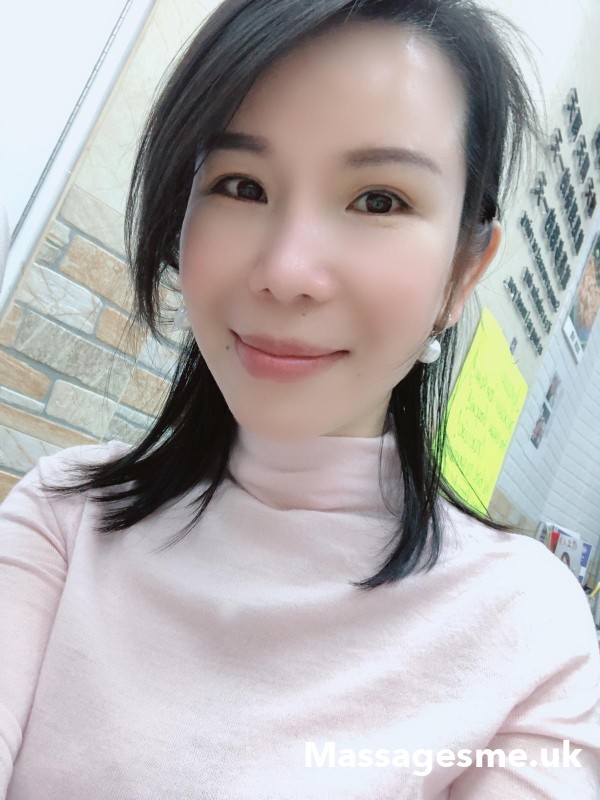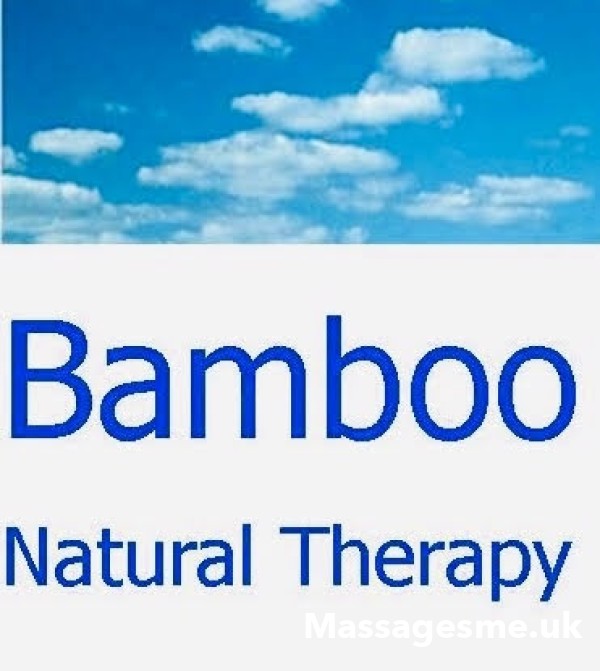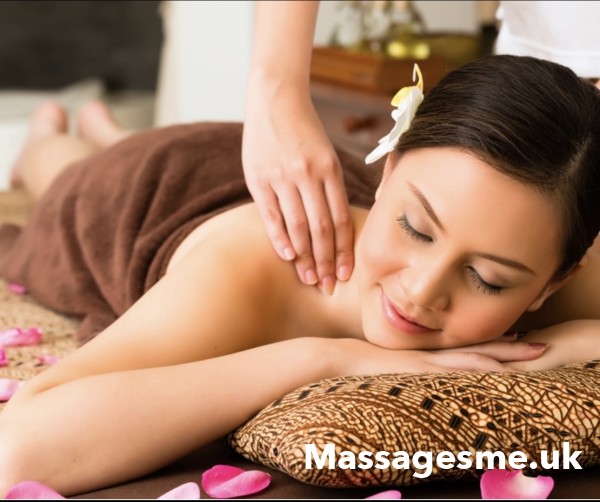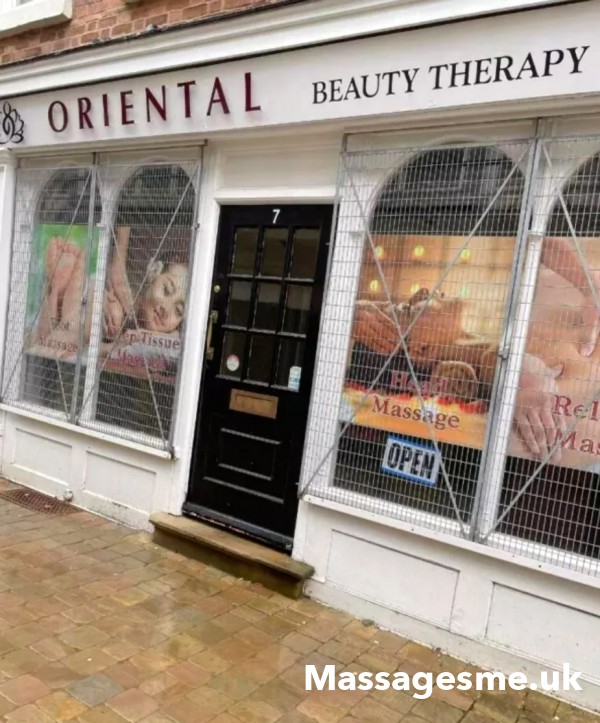Acupuncture represents one of the most extensively researched and clinically validated traditional healing practices integrated into modern healthcare systems worldwide. This sophisticated therapeutic modality, originating from Traditional Chinese Medicine over 3,000 years ago, involves the precise insertion of ultra-fine sterile needles into specific anatomical points to stimulate the body's natural healing mechanisms. In the United Kingdom, acupuncture has achieved mainstream medical recognition, with integration into NHS services, NICE guidelines, and comprehensive regulatory frameworks ensuring patient safety and treatment efficacy.
Understanding Acupuncture: Ancient Wisdom Meets Modern Medicine
Contemporary acupuncture practice in the UK seamlessly integrates traditional Chinese medical theory with rigorous modern scientific understanding, creating a comprehensive therapeutic approach that addresses both the symptoms and underlying patterns of ill health. This integration has positioned acupuncture as a respected medical intervention within evidence-based healthcare frameworks.
The practice involves the insertion of single-use, sterile stainless steel needles, typically 0.16-0.46mm in diameter, into precisely located acupuncture points. These points, numbering over 2,000 across the human body, correspond to specific anatomical locations where nerve pathways, blood vessels, and connective tissue intersect, creating zones of heightened bioelectrical activity that respond therapeutically to needle stimulation.
Neurobiological Mechanisms of Acupuncture
Modern neuroscience research has identified multiple physiological mechanisms explaining acupuncture's therapeutic effects, validating traditional concepts through contemporary scientific methodology:
Validated Therapeutic Mechanisms:
- Endogenous Opioid Release: Needle stimulation triggers release of endorphins, enkephalins, and dynorphins, providing natural pain relief and mood enhancement
- Neurotransmitter Modulation: Influences serotonin, dopamine, and GABA levels, affecting mood, sleep, and pain perception
- Gate Control Activation: Stimulates large-diameter nerve fibres that inhibit pain signal transmission to the brain
- Anti-inflammatory Response: Reduces pro-inflammatory cytokines whilst increasing anti-inflammatory mediators
- Autonomic Regulation: Balances sympathetic and parasympathetic nervous system activity
- Cerebral Blood Flow Enhancement: Improves circulation to brain regions involved in pain processing and emotional regulation
Clinical Evidence and Research Validation
Systematic reviews and meta-analyses have established acupuncture's efficacy across numerous health conditions, with over 4,000 peer-reviewed studies published in international medical journals providing robust evidence for its therapeutic applications.
World Health Organisation Recognition
The WHO recognises acupuncture as an effective treatment for over 100 conditions, including pain management, gastrointestinal disorders, respiratory conditions, neurological symptoms, and mental health concerns. This recognition reflects extensive international clinical research and systematic review evidence.
Conditions with Strong Evidence Base
Category 1: Strong Evidence (Multiple High-Quality RCTs)
- Chronic Pain Conditions: Osteoarthritis, lower back pain, neck pain, fibromyalgia, chronic headaches and migraines
- Nausea and Vomiting: Chemotherapy-induced, postoperative, pregnancy-related morning sickness
- Mental Health: Depression, anxiety disorders, insomnia, post-traumatic stress symptoms
- Women's Health: Menstrual irregularities, menopausal symptoms, pregnancy support, fertility enhancement
- Neurological Conditions: Stroke rehabilitation, peripheral neuropathy, trigeminal neuralgia
Category 2: Moderate Evidence (Promising Research)
- Respiratory Conditions: Asthma, allergic rhinitis, chronic obstructive pulmonary disease
- Gastrointestinal Disorders: Irritable bowel syndrome, functional dyspepsia, gastroparesis
- Cardiovascular Support: Hypertension management, post-cardiac surgery recovery
- Addiction Treatment: Smoking cessation, alcohol dependency, opioid withdrawal support
- Autoimmune Conditions: Rheumatoid arthritis, multiple sclerosis symptom management
Professional Acupuncture Techniques and Approaches
Contemporary acupuncture practice in the UK encompasses various specialised techniques and approaches, each tailored to specific conditions and patient needs.
Traditional Chinese Medicine Acupuncture
Comprehensive approach integrating pulse diagnosis, tongue examination, and constitutional assessment to develop individualised treatment protocols based on TCM pattern differentiation and meridian theory.
Medical Acupuncture
Evidence-based approach utilising Western medical diagnosis and neuroanatomical point selection, commonly practised by doctors, physiotherapists, and other healthcare professionals within NHS and private medical settings.
Electroacupuncture
Enhanced technique applying mild electrical stimulation to acupuncture needles, particularly effective for pain management, neurological rehabilitation, and addiction treatment protocols.
Auricular (Ear) Acupuncture
Specialised microsystem focusing on ear acupoints, extensively used for addiction treatment, mental health support, and pain management in clinical settings, including hospitals and rehabilitation centres.
Advanced Acupuncture Modalities
- Scalp Acupuncture: Neurological rehabilitation specialisation for stroke recovery and brain injury treatment
- Abdominal Acupuncture: Constitutional strengthening approach for chronic conditions and digestive disorders
- Japanese Acupuncture: Gentle needling techniques emphasising minimal stimulation for sensitive patients
- Korean Hand Acupuncture: Microsystem approach using hand points for systemic treatment
- Trigger Point Dry Needling: Myofascial pain treatment targeting muscular trigger points
What to Expect During Professional Acupuncture Treatment
Professional acupuncture sessions in the UK follow established clinical protocols ensuring optimal therapeutic outcomes whilst maintaining the highest safety and hygiene standards.
Initial Consultation and Assessment
Comprehensive first appointments typically last 60-90 minutes and include:
- Detailed Medical History: Current symptoms, past medical conditions, medications, allergies, and lifestyle factors
- Traditional Chinese Medicine Diagnosis: Pulse examination, tongue inspection, and constitutional assessment
- Physical Examination: Postural analysis, range of motion testing, and palpation of relevant areas
- Treatment Planning: Individualised protocol development with clear therapeutic objectives and timelines
- Safety Screening: Identification of contraindications and risk factors requiring modified approaches
- Informed Consent: Comprehensive explanation of procedures, potential side effects, and treatment expectations
Treatment Session Protocol
Standard acupuncture sessions follow this structured approach:
- Preparation (5-10 minutes): Health status review, positioning, and treatment area preparation
- Needle Insertion (5-15 minutes): Precise placement of sterile single-use needles at selected acupoints
- Needle Retention (20-30 minutes): Rest period allowing therapeutic effects to develop
- Additional Techniques (Optional): Moxibustion, cupping, or electrostimulation as appropriate
- Needle Removal and Integration (5 minutes): Gentle needle withdrawal and brief rest period
- Aftercare Discussion (5 minutes): Home care recommendations and follow-up scheduling

Safety Protocols and Professional Standards
Acupuncture safety in the UK is governed by strict professional standards, regulatory oversight, and evidence-based clinical guidelines, ensuring patient protection and treatment quality.
UK Regulatory Framework
Professional acupuncture practice in the UK operates under comprehensive regulatory oversight:
- Professional Standards Authority: Accreditation of professional bodies ensuring training standards and ethical practice
- British Acupuncture Council (BAcC): Largest professional body maintaining practitioner registers and continuing education requirements
- Association of Acupuncture Clinicians (AAC): Professional organisation for medical professionals practising acupuncture
- Local Authority Licensing: Premises registration and hygiene standard enforcement
- Professional Indemnity Insurance: Mandatory coverage for all practising acupuncturists
Contraindications and Special Precautions
While generally safe when properly administered, certain conditions require careful consideration or contraindicate acupuncture treatment:
Absolute Contraindications:
- Severe bleeding disorders or anticoagulant therapy (without medical supervision)
- Active skin infections or lesions in treatment areas
- Severe immunocompromise or neutropenia
- Unstable medical conditions requiring immediate medical intervention
- Patient refusal or extreme needle phobia
Relative Contraindications (Requiring Modified Approach):
- Pregnancy (especially first trimester) - specialist training required
- Cardiac pacemaker or implanted medical devices
- Diabetes with peripheral neuropathy
- History of fainting or seizure disorders
- Recent surgery or fracture sites
- Metal allergies or keloid scar formation tendency
Integration with Conventional Healthcare
Acupuncture increasingly integrates with conventional medical treatment across UK healthcare settings, providing complementary support for complex medical conditions whilst enhancing patient outcomes.
NHS Integration Examples
- Pain Management Clinics: Chronic pain treatment protocols incorporating acupuncture alongside conventional interventions
- Oncology Departments: Supportive care for chemotherapy side effects and cancer-related symptoms
- Maternity Services: Labour preparation, morning sickness relief, and postpartum recovery support
- Mental Health Services: Anxiety and depression treatment within integrated care pathways
- Stroke Rehabilitation Units: Neurological recovery enhancement and spasticity management
- Fertility Clinics: IVF support and reproductive health optimisation
This integration often combines acupuncture with other therapeutic modalities such as acupressure, aromatherapy, and conventional physiotherapy for comprehensive treatment approaches.
Client Experiences and Treatment Outcomes
"After two decades of chronic migraines affecting my ability to work as a surgeon, conventional treatments provided limited relief. Following a course of acupuncture through our hospital's integrated medicine programme, my migraine frequency reduced by 85%. The evidence-based approach and professional standards gave me complete confidence in the treatment." — Mr. James Patterson, Consultant Orthopaedic Surgeon, Royal Edinburgh Infirmary
"During breast cancer treatment, chemotherapy-induced nausea was debilitating despite antiemetic medications. My oncologist recommended acupuncture, and the improvement was remarkable - I was able to maintain my nutrition and quality of life throughout treatment. The integration with my medical team made the experience seamless and reassuring." — Mrs. Catherine Williams, Retired Headteacher, Cardiff
"As a professional rugby player, injury recovery and pain management are crucial for my career. Acupuncture has become an integral part of my training regimen, significantly reducing recovery times and effectively managing chronic shoulder issues. The combination with physiotherapy has been transformative for my performance and longevity in the sport." — Ryan Davies, Wales Rugby Union, Cardiff Blues
"Struggling with severe anxiety and insomnia following military service, conventional treatments had limited success. Acupuncture through the Veterans' NHS programme provided substantial improvement in sleep quality and anxiety levels. The non-pharmaceutical approach aligned perfectly with my preference for natural healing methods." — Staff Sergeant Mark Thompson (Ret.), Army Medical Corps
Choosing Qualified Acupuncture Practitioners
Selecting appropriately qualified and experienced acupuncture practitioners is essential for achieving optimal therapeutic outcomes whilst ensuring treatment safety and professional standards.
Essential Practitioner Qualifications
- Recognised Training: Minimum 3-year degree-level education from accredited institutions or equivalent medical professional training
- Professional Registration: Current membership with recognised professional bodies (BAcC, AAC, or equivalent)
- Continuing Professional Development: Evidence of ongoing education and skill enhancement
- Professional Insurance: Comprehensive indemnity and public liability coverage
- Clean Practice Protocols: Adherence to infection control and needle safety standards
- Ethical Practice: Commitment to professional codes of conduct and patient confidentiality
Treatment Setting Options
Professional acupuncture is available through various healthcare delivery models across the UK:
- NHS Integrated Services: Hospital-based clinics offering acupuncture within conventional medical frameworks
- Private Healthcare Clinics: Comprehensive acupuncture services with extended appointment times and personalised care
- Traditional Chinese Medicine Centres: Holistic approaches combining acupuncture with herbal medicine and lifestyle guidance
- Multidisciplinary Practices: Integration with physiotherapy, osteopathy, and other complementary therapies
- Mobile Acupuncture Services: Home-based treatments for patients with mobility limitations or preference for familiar environments
Treatment Expectations and Outcomes
Typical Treatment Courses
Treatment frequency and duration vary based on condition complexity, chronicity, and individual response patterns:
- Acute Conditions: 3-6 sessions over 2-3 weeks for recent onset symptoms
- Chronic Conditions: 8-12 sessions over 6-8 weeks for established health concerns
- Maintenance Care: Monthly sessions for ongoing health support and prevention
- Intensive Protocols: Daily or twice-weekly treatments for severe or complex conditions
Factors Influencing Treatment Response
- Condition duration and severity
- Overall health status and vitality
- Concurrent medications and treatments
- Lifestyle factors and stress levels
- Patient expectations and treatment compliance
- Practitioner skill and experience level
Frequently Asked Questions
Does acupuncture hurt?
Most patients experience minimal discomfort during needle insertion. Acupuncture needles are extremely fine (much thinner than injection needles), and skilled practitioners use gentle insertion techniques. Patients typically describe sensations as mild pressure, tingling, or a dull ache that subsides quickly. Many find the treatment deeply relaxing.
How quickly will I see results from acupuncture treatment?
Response varies significantly by individual and condition. Some patients notice improvements immediately or within 24-48 hours, whilst chronic conditions typically require several sessions before significant changes occur. Most practitioners recommend assessing progress after 6-8 treatments to determine the effectiveness of the treatment and modify protocols as needed.
Is acupuncture safe during pregnancy?
Acupuncture can be beneficial during pregnancy when performed by practitioners with specialist training in obstetric acupuncture. Certain points are avoided due to potential effects on pregnancy, particularly in the first trimester. Qualified prenatal acupuncturists can safely treat morning sickness, back pain, anxiety, and prepare for labour using appropriate point selections and techniques.
Can acupuncture be combined with conventional medical treatment?
Yes, acupuncture integrates safely with most conventional treatments and often enhances their effectiveness. Always inform both your acupuncturist and medical doctor about all treatments you're receiving to ensure coordinated care. Some medications may affect treatment response, and the timing of sessions relative to medical procedures may require adjustment.
How much does acupuncture cost in the UK?
Private acupuncture treatments typically cost £40-£80 per session, with initial consultations often priced higher due to extended assessment time. London and major cities generally command premium rates. Some private insurance policies cover acupuncture; check your policy details. NHS acupuncture is available in some areas for specific conditions, either through GP referral or at pain clinics.
What should I do to prepare for my first acupuncture session?
Eat a light meal 1-2 hours before treatment to avoid feeling faint. Wear loose, comfortable clothing that allows access to commonly used points on arms and legs. Compile a list of current medications, supplements, and health concerns. Avoid alcohol and caffeine immediately before treatment. Arrive relaxed and allow adequate time to avoid rushing.
Post-Treatment Care and Lifestyle Integration
Optimising Treatment Benefits
- Hydration: Increase water intake for 24 hours following treatment to support detoxification
- Rest: Avoid strenuous exercise and allow time for therapeutic effects to integrate
- Nutrition: Maintain regular, balanced meals to support energy restoration
- Stress Management: Continue relaxation practices to maintain treatment benefits
- Monitoring: Track symptom changes and energy levels between sessions
- Communication: Report treatment responses to your practitioner for protocol optimisation
Lifestyle Factors Supporting Acupuncture Treatment
- Regular sleep patterns and adequate rest
- Balanced nutrition emphasising whole foods
- Moderate exercise appropriate to your condition
- Stress reduction techniques such as meditation or yoga
- Limitation of alcohol and caffeine consumption
- Maintenance of realistic treatment expectations
The Future of Acupuncture in UK Healthcare
Acupuncture's integration within UK healthcare continues expanding, with increasing research funding, professional education initiatives, and healthcare policy recognition supporting its therapeutic value.
Current Development Trends
- NHS Expansion: Increased availability through GP surgeries and hospital departments
- Research Advancement: Ongoing clinical trials and neuroimaging studies exploring mechanisms
- Professional Integration: Medical school curricula including acupuncture training modules
- Technology Enhancement: Digital health integration and outcome measurement systems
- Regulatory Development: Continued professionalisation and standardisation initiatives
- Cost-Effectiveness Studies: Economic evaluations supporting healthcare funding decisions
Conclusion: Evidence-Based Traditional Medicine for Modern Healthcare
Acupuncture represents a remarkable integration of ancient healing wisdom with contemporary medical understanding, providing evidence-based therapeutic interventions for numerous health conditions within the UK's evolving healthcare landscape. Through rigorous research validation and professional regulation, acupuncture has established itself as a safe, effective, and cost-efficient treatment option for patients seeking comprehensive healthcare solutions.
The key to successful acupuncture treatment lies in working with appropriately qualified practitioners who understand both traditional Chinese medical principles and modern safety protocols. When integrated thoughtfully into comprehensive healthcare plans, acupuncture provides measurable benefits for both acute and chronic conditions, while supporting the body's natural healing capabilities.
Whether seeking relief from chronic pain, support during medical treatment, or enhancement of overall well-being, acupuncture offers a scientifically validated pathway to improved health outcomes. Through platforms like Massages Me UK, accessing qualified practitioners and beginning your acupuncture journey has never been more straightforward or reliable.
Begin Your Acupuncture Treatment Journey
Discover the transformative benefits of professional acupuncture by connecting with qualified practitioners through Massages Me UK. Our comprehensive platform features experienced healthcare professionals specialising in acupuncture and Traditional Chinese Medicine throughout England, Scotland, Wales, and Northern Ireland.
Simply enter your postcode to explore available practitioners, compare qualifications and specialisations, read verified client testimonials, and book your personalised acupuncture consultation with complete confidence. Your journey towards enhanced health through evidence-based traditional medicine begins with a single appointment.
Whether you prefer treatment at established UK spas, private clinics, or the convenience of mobile acupuncture services, Massages Me connects you with qualified male therapists and female therapists committed to delivering safe, effective, and professionally excellent care.








